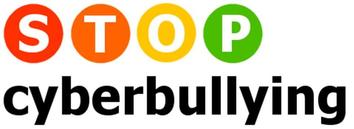Bullying is something many of us have encountered in our lives. Luckily for most of us, it’s a distant memory from our days in the school yard. Sadly, that’s not the case for everyone. As part of our Social Media Series, we conducted a survey of Irish business professionals and were shocked to find that 46% of respondents were victims of bullying in the workplace.
It’s not just kids that are being picked on online either. Our research revealed that almost four in 10 professionals have experienced cyber bullying, with 42 percent being targeted through social media and 28 percent via email with their work, relationships with colleagues, physical abilities and appearance being the most common focus for the bullies.
Understandably, many of these individuals have experienced dissatisfaction with their jobs (83%) feelings of depression (66%) and a lack of confidence (60%) as a direct result of the bullying. While the majority (80%) of individuals tried to just ignore the issue, it is very sad and worrying to see that of the 20 percent that did report the problem or make a formal complaint, only two fifths felt their employer took appropriate measures to deal with it.
As employers we have a duty of care to our employees and should strive to create a safe and positive environment. No matter how you dress it up, whether it’s physical or cyber, bullying is bullying and should be treated with the utmost seriousness.
Let’s set the scenario: A member of staff comes to you to complain that they are being bullied on Facebook by a fellow employee and that they are considering leaving the business as a result of this behaviour. What do you do?
Firstly, there are two issues that you should be concerned about in this situation that are linked but should be dealt with separately;
- Properly investigating the bullying allegation
- Ensuring that if the staff member leaves that you don’t face an action for constructive dismissal.
Unless you have experience in these matters and are happy that you will be able to deal with the investigation, you should consider getting advice from a HR consultant before embarking on taking any action. However, if you do decide to proceed on your own here is a seven step outline of the process you should go through:
#1 Refer to your policy on bullying that you should have in your handbook or safety statement and should have been given to every staff member. You should also clearly state your company’s stance on bullying in your social media policy. If you don’t have a policy, you are already in a difficult situation as you will have to investigate the allegations without a written policy or procedure in place that could result in problems if you do find yourself defending a claim for constructive dismissal.
#2 Sit down with the staff member who is making the allegations and take a full and detailed statement from them under the following headings:
- Confirmation of who they are making the allegations against;
- Full details of the particular incidents they are complaining about and
- Whether there are any witnesses to the alleged incidents.
#3 Depending on the seriousness of the bullying allegations and the state of mind of the staff member making the allegations you might also want to consider if it is appropriate to offer them time off, on full pay, whilst you are carrying out your investigation. You should then, if practical, put the allegations into some form of a statement for the employee to consider and sign. You should also assure them that they should remain on as an employee until the investigation is completed and a decision is made as to what action to take, if any.
#4 Following this, talk to the person who has been accused of the bullying behaviour. This is clearly going to be an awkward situation and it is not uncommon for the person to express disbelief and shock at the allegations. Again it is important that you give as much information on the allegations so that the person has time to consider them and respond accordingly. You should also make it clear that you are merely conducting an investigation into the allegations and that this is not a disciplinary process. Again, if possible you should get the staff member to prepare some form of statement in response to the allegations. As with giving the alleged victim an option of time off, you may also have to consider a suspension on full pay of the person accused of the bullying if you feel the situation is serious enough for that course of action.
It is essential that you assure the staff member who has been accused of bullying in the workplace that the suspension option is only because the work circumstances mean that it would be difficult for the two individuals to work together and not part of a disciplinary sanction.
#5 You should also take statements from any other members of staff or otherwise that either of the employees offer as witnesses.
#6 Once you have completed the process of taking the statements you will then have to consider if there are grounds to take the next step which is a disciplinary investigation. The difference with this investigation is that you are taking an action on a staff member under your disciplinary procedure. Again, if you don’t have a written procedure in place you have to make sure that you carry out the investigation fairly and give all parties as much information as possible as to what is being alleged and an opportunity to answer any claim made against them.
#7 Once the disciplinary investigation is completed, depending on the outcome of the investigation, you will then have to take the appropriate action against the staff member. For example, if the allegations are found to be true and to be at the higher end of the scale you may have to consider a dismissal or a suspension. For lesser offences you could issue a written or verbal warning on the clear understanding that if there is a re-occurrence that the possibility of dismissal is high. This process will be a lot easier if you have in place a proper written procedure on how a disciplinary process will work, irrespective of the type of conduct by the staff member that requires action by the employer.As I mentioned at the start, investigating and addressing the accusation of bullying in the workplace is one issue. As an employer it is important to ensure you minimise your exposure to claims of unfair dismissal. The best way to do this is to clearly demonstrate a fair and rational disciplinary procedure. It should clearly set out the basis for the disciplinary action and the range of penalties that can be imposed. It should also provide for some form of internal appeal mechanism. This is another reason why an employer should consider having another senior member of staff or an outside person carry out the initial investigation as the employer can be the person to hear the appeal. Any allegations should be clearly explained to the employee concerned and they should be given a chance to respond fully to these allegations. An employee has the right to be represented, if they wish, and if appropriate all allegations should be set out in writing.
Following on from this if an employer can show that a fair process was followed then it would be more difficult for a disgruntled employee to resign from their job and then bring an action for constructive dismissal. A lot of constructive dismissal claims, where an employee resigns but claims that they were left with no option, are grounded on the allegation that the investigative and/or the disciplinary procedures followed by the employer were flawed and did not follow the employers own policies or if there were no policies did not follow the rules of fairness and natural justice.
Given the relative size of a lot of small businesses the reality is that investigations into these types of allegations are difficult, particularly as both the accuser and the accused often work in close proximity to one another. The employer can also find it difficult because they don’t want to have to take sides or be seen to make the wrong decision. If you feel that you are unable to be objective, you should consider getting another senior person unconnected with the situation to carry out the investigation or alternatively get someone from outside the business to do it who has some experience in these matters. That way you will certainly be able to show that you took the allegations seriously and had a full and thorough investigation into the allegations.
For more helpful HR tips and advice, CLICK HERE to sign up to our monthly newsletter.
David Bell is Managing Director of The HR Department, outsourced human resources specialists for Irish SMEs.
The contents of this article are necessarily expressed in broad terms and limited to general information rather than detailed analyses or legal advice. Specialist professional advice should always be obtained to address legal and other issues arising in specific contexts.




 RSS Feed
RSS Feed